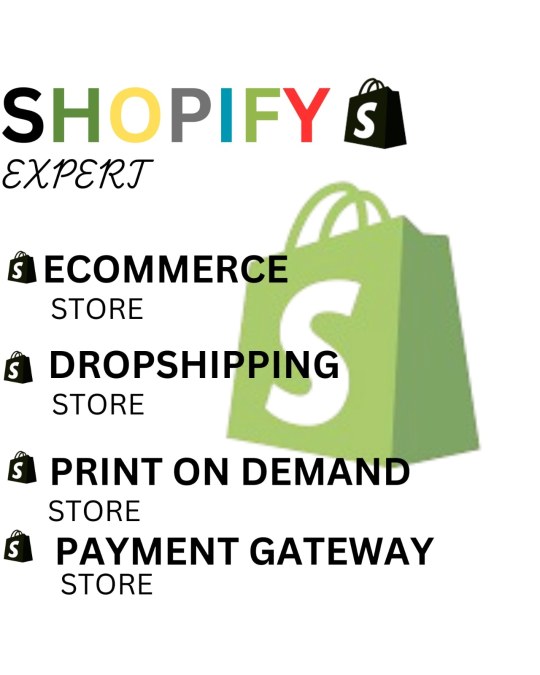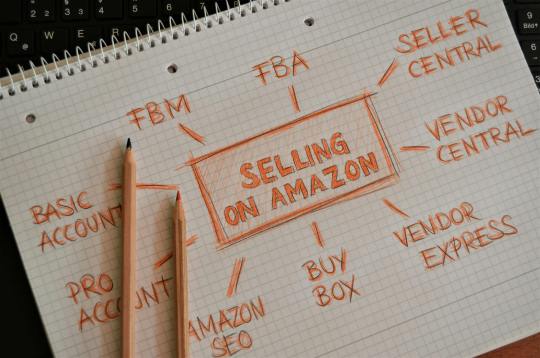#SEO Shopify
Explore tagged Tumblr posts
Text
What to Consider When Choosing a Shopify SEO Company

In today's digital landscape, having a strong online presence is crucial for businesses to thrive. For Shopify store owners, optimizing their websites for search engines like Google is paramount to attract more traffic and potential customers. However, navigating the world of SEO can be complex and time-consuming. That's where Shopify SEO companies come into play. But how do you choose the right one for your business? Let's delve into what factors you should consider when selecting a Shopify SEO company.
Understanding Your SEO Needs
Before embarking on your search for a Shopify SEO company, it's essential to understand your specific SEO requirements. Are you looking to increase website traffic, improve keyword rankings, or boost conversion rates? Identifying your goals and priorities will help you narrow down your options and find a company that aligns with your objectives.
Experience and Track Record
When evaluating Shopify SEO companies, consider their experience and track record in the industry. Look for firms that have a proven history of delivering results for clients across various niches. An established track record indicates expertise and reliability, giving you confidence in their ability to handle your SEO needs effectively.
Transparency and Communication
Transparency and open communication are key factors in any successful business partnership. Choose a Shopify SEO company that prioritizes clear and honest communication throughout the process. They should be readily available to address your concerns, provide progress updates, and explain their strategies in a way that you can understand.
Comprehensive SEO Strategies
Effective SEO requires a multifaceted approach that encompasses various techniques and tactics. Ensure that the Shopify SEO company you choose offers comprehensive strategies tailored to your business goals. From keyword research and on-page optimization to link building and content creation, their approach should be holistic and strategic.
Customization and Flexibility
Every business is unique, and your SEO strategy should reflect that. Look for a Shopify SEO company that offers customization and flexibility in their services. They should be willing to adapt their strategies to suit your specific industry, target audience, and business objectives.
Reviews and Testimonials
One of the best ways to gauge the credibility and reliability of a Shopify SEO company is by reading reviews and testimonials from past clients. Pay attention to feedback regarding the company's professionalism, results, and level of customer satisfaction. Positive reviews can provide valuable insights into what you can expect from their services.
Pricing and Budget Considerations
While cost shouldn't be the sole determining factor, it's important to consider your budget when choosing a Shopify SEO company. Evaluate the pricing structure and packages offered by different firms, and compare them against the value they deliver. Remember, investing in quality SEO services can yield significant long-term benefits for your business.
Ethical SEO Practices
In the ever-evolving landscape of SEO, it's crucial to prioritize ethical practices that adhere to search engine guidelines. Avoid companies that resort to black hat tactics or promise overnight results through manipulative techniques. Choose a Shopify SEO company that emphasizes ethical SEO practices and focuses on sustainable, long-term growth.
Ongoing Support and Maintenance
SEO is not a one-time endeavor but an ongoing process that requires continuous monitoring and optimization. Select a Shopify SEO company that provides ongoing support and maintenance to ensure the effectiveness and relevance of your SEO strategy. They should be proactive in identifying opportunities and addressing any issues that may arise.
Reporting and Analytics
Transparency and accountability are essential components of a successful SEO partnership. Look for a Shopify SEO company that provides detailed reporting and analytics to track the performance of your campaigns. They should offer insights into key metrics, such as website traffic, keyword rankings, and conversion rates, enabling you to make informed decisions about your SEO strategy.
Compatibility with Shopify Platform
Given that you're operating a Shopify store, it's important to choose an SEO company that is familiar with the platform and its unique requirements. They should have experience optimizing Shopify websites and leveraging its features to enhance SEO performance. A deep understanding of the Shopify ecosystem will ensure seamless integration and maximum impact.
Industry Reputation and Recognition
Consider the reputation and recognition of the Shopify SEO companies you're evaluating within the industry. Look for accolades, awards, and certifications that demonstrate their expertise and credibility. A company with a strong reputation is more likely to deliver exceptional results and provide a positive experience for their clients.
Scalability and Growth Potential
As your business grows, your SEO needs may evolve as well. Choose a Shopify SEO company that offers scalability and has the capacity to accommodate your growing needs over time. Whether you're expanding your product line, targeting new markets, or scaling your operations, ensure that your SEO partner can support your long-term growth goals.
Guarantees and Results
Beware of companies that make unrealistic promises or guarantee specific outcomes within a short timeframe. SEO is a dynamic and competitive field, and results may vary based on various factors. Look for a Shopify SEO company that sets realistic expectations and focuses on delivering measurable results through strategic planning and execution.
Conclusion
Choosing the right Shopify SEO company is a critical decision that can have a significant impact on the success of your online business. By considering factors such as experience, transparency, customization, and ethical practices, you can make an informed choice that aligns with your goals and objectives. Remember to prioritize long-term value and partnership when selecting a Shopify SEO company that will help you achieve your business objectives.
Frequently Asked Questions
1. How do I know if my Shopify store needs professional SEO services?
If you're struggling to attract organic traffic, improve search engine rankings, or achieve your business goals, it may be time to consider professional SEO services. A Shopify SEO company can assess your website's performance, identify areas for improvement, and implement strategies to enhance your online visibility and profitability.
2. What makes Shopify SEO different from traditional SEO?
Shopify SEO focuses on optimizing websites built on the Shopify platform, taking into account its unique features, functionality, and requirements. This includes optimizing product pages, collections, meta tags, and other elements specific to Shopify stores. While the principles of traditional SEO still apply, Shopify SEO requires specialized knowledge and expertise to maximize results.
3. How long does it take to see results from Shopify SEO efforts?
The timeline for seeing results from Shopify SEO efforts can vary depending on various factors, including the competitiveness of your industry, the current state of your website, and the effectiveness of the strategies implemented. While some improvements may be noticeable within a few weeks, significant results typically take several months of consistent effort and optimization.
4. What should I look for in an SEO company's portfolio?
When reviewing an SEO company's portfolio, pay attention to the types of businesses they've worked with, the results they've achieved, and the specific strategies they've implemented. Look for case studies, success stories, and tangible evidence of their expertise and capabilities in improving search engine rankings, driving organic traffic, and generating leads or sales.
5. How much should I budget for Shopify SEO services?
The cost of Shopify SEO services can vary depending on the scope of work, the level of expertise, and the quality of service provided by the SEO company. It's important to balance your budget considerations with the value and ROI offered by the services. While pricing should not be the sole determining factor, aim to invest in services that deliver tangible results and long-term growth for your business.
#Best Shopify Seo Company#Seo Company For Shopify#Seo Company For Shopify Ecommerce#Seo Company Shopify#Seo For Shopify#Seo On Shopify#Seo Shopify#Shopify Seo Agency#Shopify Seo Companies#Shopify Seo Company#Shopify Seo Company Nj#Shopify Seo Expert#Shopify Seo Experts#Shopify Seo Services
1 note
·
View note
Text
Steps to Select an SEO Company for Your Shopify Store
Deciding to put your foot forward in the big digital world and aim to be at the top requires help from experts. If you own a Shopify store, you know the importance of search engine optimization (SEO) in bringing customers to your website and increasing sales. But how can you tell which Shopify SEO company is best for you when there are so many of them? Thousands of SEO agencies exist today. Do you need assistance with SEO? When that happens, you undoubtedly want to know how to pick an SEO company. After all, the industry is enormous. So, in this blog post, we will walk you through some crucial factors for picking the right professional SEO company that is a good fit for your business.
0 notes
Text

The media has always been passive aggressive with those that compete against their interests...
#internet#website#internet freedom#internet privacy#google#facebook#social media#instagram#tiktok#youtube#streaming#newspaper#search engine optimization#seo#microsoft#bill gates#mark zuckerberg#elon musk#twitter#podcast#spotify#shopify
12 notes
·
View notes
Text

Get Premium Service from Shopify Expert
#small business#business#finance#christmas#web development#seo#dropshipping#ecommerce#halloween#shopify#womeninbusiness#local seo#localbusiness#shopify plus#shopify experts#ecommerce store#Dropshipping store#print on demand#payment gateway
5 notes
·
View notes
Text
The Ultimate SEO Checklist for Your Shopify Store
In today’s competitive eCommerce landscape, having a visually appealing Shopify store isn’t enough. To attract potential customers, you need a solid SEO strategy. Search Engine Optimization (SEO) helps your online store rank higher in search engine results, increasing visibility and driving organic traffic. Here’s your ultimate SEO checklist for optimizing your Shopify store.
1. Keyword Research
Start with thorough keyword research. Use tools like Google Keyword Planner or SEMrush to identify keywords relevant to your products. Focus on long-tail keywords that reflect your specific offerings, as they often have less competition and higher conversion rates.
2. Optimize Product Titles and Descriptions
Once you have your keywords, incorporate them naturally into your product titles and descriptions. Ensure that your titles are clear and descriptive, and that your descriptions provide valuable information that helps customers make purchasing decisions.
3. Use Alt Text for Images
Images are crucial in eCommerce, but they also need to be optimized for SEO. Use descriptive alt text for every image, incorporating relevant keywords. This not only helps search engines understand your images but also improves accessibility for visually impaired users.
4. Create SEO-Friendly URLs
Your store’s URLs should be simple, descriptive, and include relevant keywords. For example, instead of a URL like shopify.com/product123, use shopify.com/organic-cotton-tshirt. This improves both SEO and user experience.
5. Enhance Site Speed
A fast-loading website is vital for retaining customers and improving SEO rankings. Use tools like Google PageSpeed Insights to analyze your site’s speed and make necessary improvements, such as optimizing images and minimizing JavaScript.
6. Mobile Optimization
Ensure your Shopify store is mobile-friendly. With a significant portion of online shopping done on mobile devices, a responsive design is essential for both user experience and SEO.
7. Implement Internal Linking
Internal links help search engines understand the structure of your site and keep users engaged. Link relevant products, blog posts, and categories within your store to improve navigation and SEO.
8. Utilize Schema Markup
Schema markup enhances your store’s appearance in search results. Implementing this code helps search engines understand your content better and can lead to rich snippets, improving click-through rates.
9. Monitor Analytics
Use tools like Google Analytics and Shopify Analytics to track your store’s performance. Monitor metrics like traffic sources, bounce rates, and conversion rates to identify areas for improvement.
10. Build Quality Backlinks
Lastly, focus on building quality backlinks. Reach out to influencers, bloggers, and industry-related websites to gain links back to your store. Quality backlinks improve your domain authority and help boost search rankings.
Conclusion
Optimizing your Shopify store for SEO is an ongoing process that requires dedication and strategy. By following this ultimate SEO checklist, you’ll enhance your online visibility, attract more visitors, and ultimately drive sales. Start implementing these tips today and watch your Shopify store thrive!
#SEO#Shopify#eCommerce#Digital Marketing#Website Optimization#Online Store#SEO Checklist#Search Engine Optimization#Shopify Tips#Marketing Strategy
3 notes
·
View notes
Text
How to Use Google Search Console: A Comprehensive Guide
[et_pb_section fb_built=”1″ _builder_version=”4.27.4″ _module_preset=”default” global_colors_info=”{}”][et_pb_row _builder_version=”4.27.4″ _module_preset=”default” global_colors_info=”{}”][et_pb_column type=”4_4″ _builder_version=”4.27.4″ _module_preset=”default” global_colors_info=”{}”][et_pb_text _builder_version=”4.27.4″ _module_preset=”default” hover_enabled=”0″ global_colors_info=”{}”…
2 notes
·
View notes
Text
ARE YOU INTERESTED IN ACHIEVING YOUR GOAL ON SHOPIFY PLATFORM?

#shopify#shopify dropshipping#shopifyowner#seo optimization#campaign#dropshipping#email marketing#social media#social media manager
3 notes
·
View notes
Text
AB Test And Conversion Rate Optimisation
Source: https://cro.media/
2 notes
·
View notes
Text

Starting an e-commerce business can be an exciting venture with immense potential. However, with the opportunities come challenges and uncertainties. Before diving into the world of online retail, it’s crucial to plan carefully and set a solid foundation. Here are some essential tips to consider before launching your e-commerce business:
1. Conduct Market Research
Understanding the market is fundamental to any successful business. Start by identifying your target audience and analyzing competitors. Research trends, customer preferences, and potential gaps in the market. Tools like Google Trends, social media analytics, and industry reports can provide valuable insights. This research will help you tailor your products or services to meet market demands and differentiate yourself from competitors.
2. Define Your Business Model
E-commerce offers various business models, such as B2C (Business to Consumer), B2B (Business to Business), C2C (Consumer to Consumer), and subscription-based models. Determine which model aligns with your goals and resources. Each model has its own set of challenges and requirements, so choose one that best fits your product or service and target market.
3. Create a Solid Business Plan
A comprehensive business plan serves as a roadmap for your e-commerce venture. Outline your business goals, strategies, target audience, marketing plan, financial projections, and operational plan. This document will not only guide your efforts but also help secure funding if needed. A clear plan can keep you focused and organized as you navigate the complexities of launching and running an e-commerce business.
4. Choose the Right E-Commerce Platform
Selecting the right e-commerce platform is crucial for the success of your online store. Popular platforms like Shopify, WooCommerce, Magento, and BigCommerce each offer unique features and capabilities. Consider factors such as ease of use, scalability, customization options, payment gateways, and integration with other tools. The platform should align with your business needs and provide a user-friendly experience for both you and your customers.
5. Develop a User-Friendly Website
Your website is the face of your e-commerce business. Ensure it’s designed to be user-friendly, visually appealing, and optimized for mobile devices. A clean, intuitive layout with easy navigation will enhance the shopping experience and reduce cart abandonment rates. Focus on high-quality images, detailed product descriptions, and a seamless checkout process. Additionally, implement search engine optimization (SEO) strategies to improve your site’s visibility in search engines.
6. Implement Secure Payment Processing
Security is a top priority in e-commerce. Customers need to trust that their payment information is safe. Choose a reputable payment gateway and ensure your website uses SSL certificates to encrypt data. Additionally, offer multiple payment options, including credit/debit cards, digital wallets, and other payment methods that are popular with your target audience.
7. Plan Your Logistics and Supply Chain
Efficient logistics and supply chain management are vital for e-commerce success. Develop a strategy for inventory management, warehousing, and shipping. Decide whether you’ll handle fulfillment in-house or partner with third-party logistics providers. Consider shipping options, delivery times, and costs. A smooth and reliable fulfillment process can significantly impact customer satisfaction and repeat business.
8. Craft a Marketing Strategy
Effective marketing is essential to drive traffic and sales to your e-commerce store. Develop a multi-channel marketing strategy that includes social media, email marketing, content marketing, and paid advertising. Create engaging content, run promotions, and leverage social media platforms to build brand awareness and attract customers. Monitor and analyze the performance of your marketing efforts to refine your strategies over time.
9. Focus on Customer Service
Exceptional customer service can set your e-commerce business apart from competitors. Provide multiple channels for customer support, such as live chat, email, and phone. Ensure timely responses to inquiries and resolve issues promptly. Building strong customer relationships and encouraging feedback can enhance customer loyalty and drive positive reviews.
10. Monitor and Adapt
The e-commerce landscape is constantly evolving. Regularly review your business performance, track key metrics, and gather customer feedback. Stay informed about industry trends and technological advancements. Be prepared to adapt your strategies and operations based on insights and changes in the market.
#ecommerce#marketing#business#digitalmarketing#ecommercebusiness#entrepreneur#onlineshopping#website#seo#webdesign#b#marketingdigital#onlinebusiness#branding#shopify#smallbusiness#socialmediamarketing#webdevelopment#online#amazon#shopping#onlinestore#onlineshop#design#ecommercewebsite#dropshipping
5 notes
·
View notes
Text
2 notes
·
View notes
Text

Looking for a low budget to start promoting your ecommerce store start as low as 10 bucks
#shopify#myshopify.com#etsy#ecommerce#etsyshop#etsyfinds#etsystore#etsyseller#woocommerce#wordpress#ebaystore#ebayseller#ebay deals#ebay#selling on ebay#online#seo services#seo#klaviyo
3 notes
·
View notes
Text
How to Select an SEO Company for Your Shopify Store
If you’re an e-commerce business owner and are in search of a Shopify SEO company to propel your online presence, it’s essential to ask yourself a crucial question: How do you find the right individual or company for the task at hand? To help guide you in your selection process, here are a few key qualities to look for in an expert.
0 notes
Text
Interested in creating a lucrative online Ecommerce store through dropshipping? I can offer expert guidance and support to help you achieve success. Let's schedule a consultation or DM me directly to explore how we can work together to generate a substantial monthly income.

#Shopify#ecommerce#ecomoda#entrepreneur#emailmarketing#dropshipping#shopify#etsy#social media#website design#seo services
2 notes
·
View notes
Text
How Headless WordPress Can Help Your Business Grow? | Island Wizards

As businesses continue to grow online, having a fast, flexible, and future-proof website is important. One of the best ways to achieve this is by using Headless WordPress. At Island Wizards, we offer headless WordPress solutions that can help your business succeed in today’s digital world.
But what exactly is Headless WordPress, and how can it help your business?
What is Headless WordPress?
In traditional WordPress, the backend (where you manage your content) and the frontend (what the user sees) are connected. With Headless WordPress, these two are separated. WordPress still manages your content, but the frontend can be built using different tools and technologies, making your website faster and more customizable.
Let’s take a look at how this setup can benefit your business:
1. Faster Website for Better User Experience
When a website loads slowly, users are more likely to leave. Headless WordPress allows your website to be built with modern technologies that load content quickly, improving the overall user experience. A faster website also means better rankings on search engines like Google, which can bring more traffic to your site.
At Island Wizards, we ensure that your headless WordPress site is fast and smooth, helping you keep visitors engaged and satisfied.
2. Deliver Content Everywhere
With Headless WordPress, you can deliver your content to multiple platforms—not just your website. Whether it’s a mobile app, social media, or even a smart device, headless WordPress makes it easy to share your content across all channels. This helps you reach a wider audience, wherever they are.
At Island Wizards, we help you set up a system that makes your content available on different platforms, so your business can grow beyond just a website.
3. Keep Up with New Technology
Technology is always changing, and your website should be able to keep up. Headless WordPress allows you to update the frontend of your website (how it looks and works) without having to change your entire content management system. This makes it easier to add new features or update your design as trends and user expectations evolve.
Our team at Island Wizards builds future-proof websites that can grow and change with your business, so you’re always prepared for what’s next.
4. Increased Security
Online security is a big concern for businesses. With Headless WordPress, your website’s backend is more secure because it’s separated from the frontend. This reduces the risk of common attacks and makes your website less vulnerable to hackers.
At Island Wizards, we make sure your headless WordPress site is protected with the best security practices, giving you peace of mind.
5. Easy to Scale as You Grow
As your business grows, so will your website’s needs. Whether you’re getting more traffic or adding new features, Headless WordPress can scale easily. You can add more content, handle larger audiences, and ensure your website stays fast, no matter how big your business gets.
At Island Wizards, we create websites that grow with you, ensuring that your digital platform is always ready to meet increasing demands.
Conclusion
Headless WordPress is a powerful solution that helps businesses create faster, more flexible, and future-ready websites. With the ability to deliver content across multiple platforms, keep up with new technologies, improve security, and scale easily, it’s the perfect choice for businesses looking to grow.
At Island Wizards, we specialize in building custom headless WordPress solutions that help businesses succeed in the digital world. If you’re ready to take your website to the next level, contact us today and find out how we can help your business grow. Explore more about us… https://islandwizards.com/services/shopify/ https://islandwizards.com/services/headless-wordpress/
#shopify#wordpress#island wizards#headless wordpress development services#seo#island wizards uk'#wizards island#shopify partner program#white label agency
2 notes
·
View notes
Text
The Benefits of Professional E-commerce Account Management

Managing an e-commerce account can be a daunting task, especially in today’s fast-paced digital marketplace. With numerous elements to juggle—from product listings to customer interactions—many sellers find themselves overwhelmed. This is where specialized expertise in e-commerce account management can make a significant difference.
The Complexity of E-Commerce Selling
Selling online presents incredible opportunities but also comes with challenges. With countless products vying for attention, having a well-optimized account is essential for standing out. Understanding the nuances of listing optimization, keyword strategies, and customer service can be the difference between success and stagnation.
Harnessing Tailored Strategies
Every business is unique, and so are its needs in the e-commerce realm. A customized approach to e-commerce account management helps sellers identify the best strategies to enhance visibility and sales. By analyzing market trends and consumer behavior, businesses can adopt tactics that resonate with their target audience and align with their brand values.
The Power of Optimization
Creating compelling product listings is crucial. High-quality images, engaging descriptions, and strategic keyword use not only attract buyers but also improve search rankings. By focusing on these elements, sellers can significantly increase their chances of converting views into sales.
Maximizing Advertising Potential
The world of e-commerce advertising is vast and intricate. Leveraging this platform effectively requires a keen understanding of targeting and budget management. Employing data-driven approaches allows businesses to craft campaigns that reach their ideal customers, optimizing their advertising spend for better returns.
Fostering Customer Trust
Positive customer reviews are vital for building credibility in e-commerce. Providing exceptional service and quality products encourages satisfied customers to share their experiences. Promptly addressing inquiries and concerns enhances the shopping experience, fostering loyalty and repeat business.
Embracing Professional Management
Navigating the e-commerce landscape doesn’t have to be a solo journey. Many businesses are discovering the benefits of seeking specialized assistance to manage their accounts. This allows them to focus on core operations while ensuring their online presence is expertly handled.
Conclusion
In conclusion, the potential for growth in e-commerce is immense, but it often requires a well-thought-out strategy and dedicated management. By embracing professional support in e-commerce account management, sellers can unlock new opportunities and enhance their overall performance. As the digital marketplace continues to evolve, having the right approach can make all the difference in achieving lasting success.
#digital marketing#amazon#shopify eccomerce store#amazon seller#amazon seo services#marketplace#etsy sellersale#business solutions#services#amazon ads#flipkart#meesho#ecommerce#ecommerce business
2 notes
·
View notes